- Get link
- X
- Other Apps
Autoimmunity and Parkinsons Autoimmune diseases arise because the immune system attacks healthy organs tissues and cells instead of protecting. It has long been suspected that immune alterations are an.
 Drugs That Suppress Immune System May Protect Against Parkinson S Drug Discovery And Development
Drugs That Suppress Immune System May Protect Against Parkinson S Drug Discovery And Development
However recent findings indicate that both innate and adaptive immune systems play critical roles in the pathogenesis of PD 6976.

Parkinson's and immune system. These findings suggest Parkinsons may be an autoimmune disorder in which the immune system mistakenly attacks part of the body. Immune system may wage a battle in brain disorders. Parkinsons disease PD is widespread and well-studied but its origins remain somewhat of an enigma to the medical establishment.
Immune system may mount an attack in Parkinsons disease NIH-funded study suggests role for specific immune cells in brain disease. Signs of microglia activation in the PD brain postmortem as well as during. These barriers do in fact exist but it is now understood that.
The neuropathological hallmarks of Parkinsons disease PD are the degeneration and death of dopamine-producing neurons in the ventral midbrain the widespread intraneuronal aggregation of alpha-synuclein α in Lewy bodies and neurites neuroinflammation and gliosis. A Confused Immune System Could Be Behind Parkinsons Disease. This evidence includes clinical and genetic associations between autoimmune disease and PD.
Multiple lines of evidence indicate that immune system dysfunction has a role in Parkinson disease PD. Parkinsons and the immune system Genes associated with Parkinsons disease point to an interface between the nervous system and immune system. These findings suggest that the immune system may play a role in the start or progression of Parkinsons disease.
This evidence includes clinical and genetic associations between autoimmune disease and PD impaired cellular and humoral immune responses in PD imaging. RUB A research team was thus able to provide further evidence that there are interfaces between the nervous system and the immune system. Researchers found that immune cells recognize and react to alpha-synuclein the protein that builds up in the brains of people with Parkinsons disease.
These barriers may be compromised in brain diseases such as Parkinsons disease PD. Parkinson disease and the immune system - associations mechanisms and therapeutics. Mutations in the Parkin gene are a common cause of hereditary forms of Parkinsons disease.
Yet as of now there is no cure for PD in part because the root cause is still a mystery explains James Beck PhD Chief Scientific Officer. Parkinsons Disease and Autoimmunity This autoimmune component of PD may only be one piece of a larger puzzle. There have been hints before that.
The study which looked at immune cells from 67 people with Parkinsons and 36 healthy participants shows that the condition may cause an autoimmune response. Past thinking was that the immune system of the body and the immune system of the brain did not influence each other due to natural barriers that prevented crosstalk. Researchers provide new evidence of the link between Parkinsons disease and the immune system.
New research reported in the scientific journal Nature suggests that the immune system plays an important role in the progression of Parkinsons. Multiple lines of evidence indicate that immune system dysfunction has a role in Parkinson disease PD. Researchers have found solid evidence in support of a century old hypothesis claiming the bodys own immune system plays a strong role in the development of Parkinsons disease.
Does the Immune System Play a Role in Parkinsons Disease. An image of a T cell from a healthy person. For example it has been reported recently that there are higher densities of CD8 and CD4 T cells near DA neurons in the brain of patients with PD than in healthy individuals 77.
The behaviour of immune cells in the blood is so different in patients with Parkinsons disease that it advocates for a new type of supplementary. This may lead to the development of novel therapeutic strategies. In this review we discuss the most recent findings regarding how LRRK2 could be a player in the inflammatory response and we propose a scenario where the detrimental effects mediated by Parkinsons disease LRRK2 mutations may initiate in the periphery and extend to the central nervous system as a consequence of increased levels of pro-inflammatory factors permeable to the blood.
 Targeting Alpha Synuclein In The Gut May Slow Down Parkinson S Disease Ios Press
Targeting Alpha Synuclein In The Gut May Slow Down Parkinson S Disease Ios Press
 Immune System And Parkinson S Part 1 The Brain And Immune System Are Connected Journey With Parkinson S
Immune System And Parkinson S Part 1 The Brain And Immune System Are Connected Journey With Parkinson S
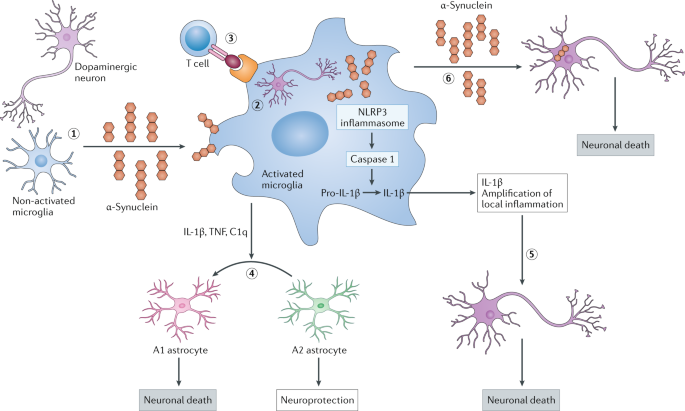 Parkinson Disease And The Immune System Associations Mechanisms And Therapeutics Nature Reviews Neurology
Parkinson Disease And The Immune System Associations Mechanisms And Therapeutics Nature Reviews Neurology
 Immune System May Mount An Attack In Parkinson S Disease National Institutes Of Health Nih
Immune System May Mount An Attack In Parkinson S Disease National Institutes Of Health Nih
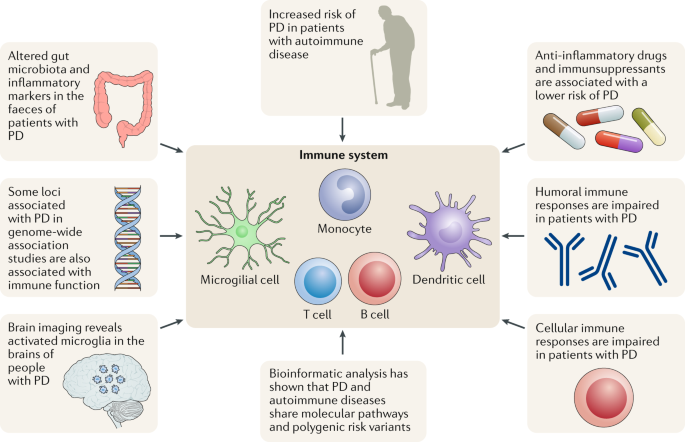 Parkinson Disease And The Immune System Associations Mechanisms And Therapeutics Nature Reviews Neurology
Parkinson Disease And The Immune System Associations Mechanisms And Therapeutics Nature Reviews Neurology
 Parkinson S Disease Linking Mitochondria To The Immune Response Elife
Parkinson S Disease Linking Mitochondria To The Immune Response Elife
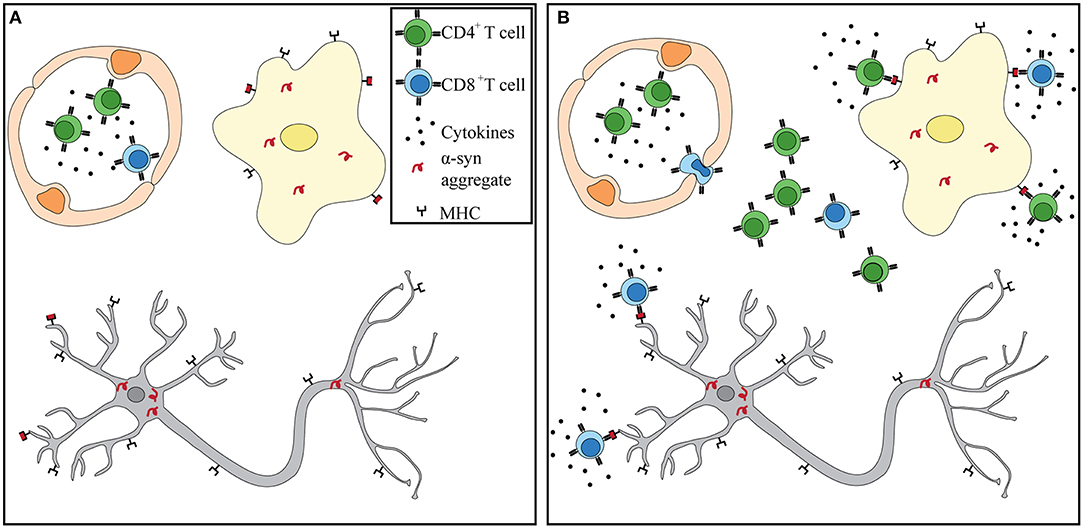 Frontiers Autoimmunity In Parkinson S Disease The Role Of A Synuclein Specific T Cells Immunology
Frontiers Autoimmunity In Parkinson S Disease The Role Of A Synuclein Specific T Cells Immunology
 Immune Responses In Parkinson S Disease Interplay Between Central And Peripheral Immune Systems
Immune Responses In Parkinson S Disease Interplay Between Central And Peripheral Immune Systems
 Immune Modulation In Parkinson S Disease Download Scientific Diagram
Immune Modulation In Parkinson S Disease Download Scientific Diagram
 The Gut Brain Axis In Parkinson S Disease Possibilities For Food Based Therapies Sciencedirect
The Gut Brain Axis In Parkinson S Disease Possibilities For Food Based Therapies Sciencedirect
 Roles For The Adaptive Immune System In Parkinson S And Alzheimer S Diseases Sciencedirect
Roles For The Adaptive Immune System In Parkinson S And Alzheimer S Diseases Sciencedirect
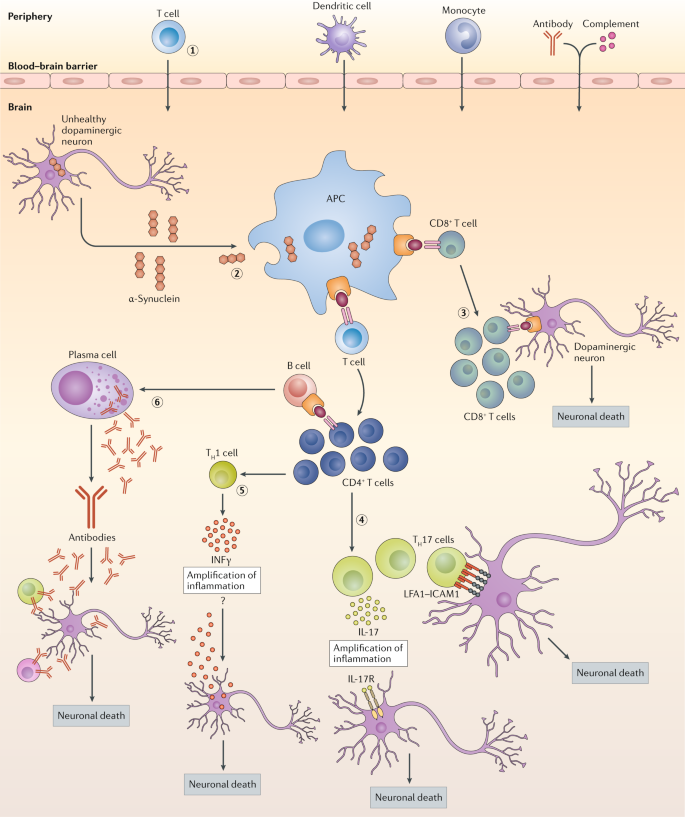 Parkinson Disease And The Immune System Associations Mechanisms And Therapeutics Nature Reviews Neurology
Parkinson Disease And The Immune System Associations Mechanisms And Therapeutics Nature Reviews Neurology
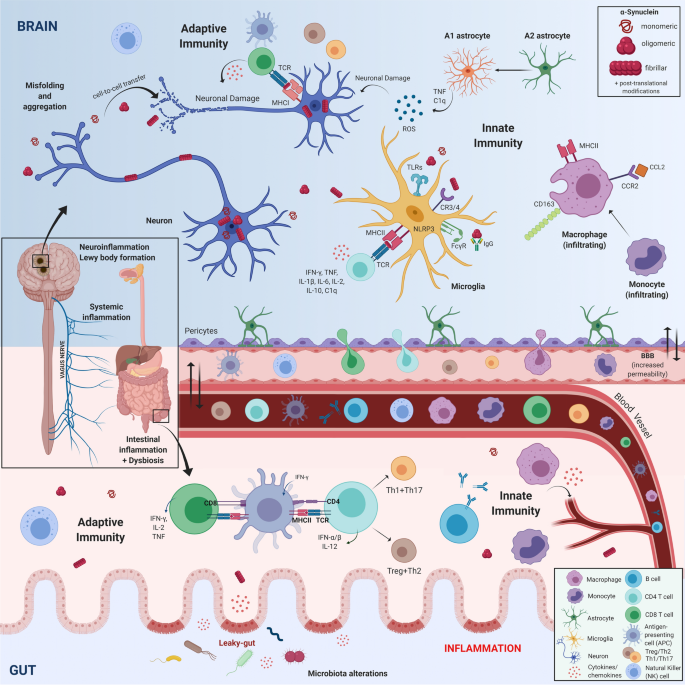 Periphery And Brain Innate And Adaptive Immunity In Parkinson S Disease Springerlink
Periphery And Brain Innate And Adaptive Immunity In Parkinson S Disease Springerlink
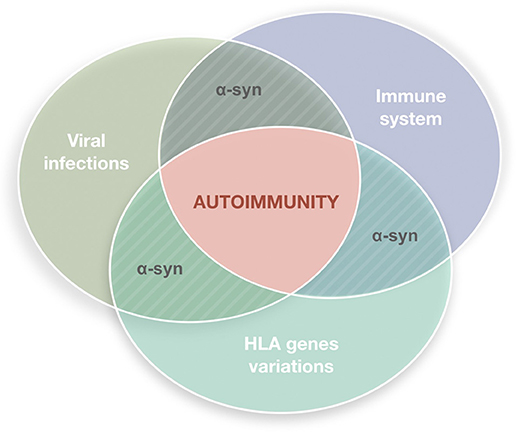 Frontiers Inflammation Infectious Triggers And Parkinson S Disease Neurology
Frontiers Inflammation Infectious Triggers And Parkinson S Disease Neurology
Comments
Post a Comment